Math. Ugh. What used to be the bane of most students’ existence is now becoming the bane of most parents’ existence. Why? Common Core.
I’m sure you’ve heard the debate about common core, but unless you have a child experiencing it, I doubt you have a full grasp of the ridiculousness that is Common Core mathematics. The focus has become not on getting the correct answer but on the process of getting to that answer. Now, usually, I’m all for process over product, but the thing about math is: There is only 1 right answer. 2+2 will never be anything other than 4! And the problem with Common Core mathematics is there is no TIME to teach the math facts like 2+2=4. (And I’m not making that up, I heard it from the mouth of a teacher at Honeybun’s school that they do not have TIME in their day to teach the math facts, that is the responsibility of the parent to do at home!)
But the problem with that is, I don’t have the TIME at home to teach Honeybun the fact because I have to do the ridiculous Common Core workbook for homework. Case in point: yesterday, it took us 15 minutes of arguing, struggling and getting frustrated with each other (and the work) to answer ONE question. Here it is:
Teni has 16 berries. She has a number of berries two greater than Marta. Use cubes to model the sets of berries. Compare the sets. Which set is larger? Draw the cubes. Write how many in each set. Circle the greater number. Tell a friend how you compared the numbers.
Umm, ok. My brain automatically knows that Marta has 14. But Honeybun’s 5 year old brain doesn’t know that because she hasn’t learned her addition/subtraction facts. So because we don’t have cubes (note: nearly every question in her math HOMEWORK book requires the use of counters, cubes or tiles, none of which we own) we use legos. I have her count out 16 legos and we lay them out in a “ten frame” (a modeling method the book uses to show 10s: 5 on top, 5 underneath). I reread her the question and ask her how she would model with the blocks how many Marta has. She adds 2. I explain that 14 (the original blocks) is how many TENI had and Teni has MORE than Marta, so how would she show how many Marta has? She tells me she needs to take away. Ok, cool. We’ve got it. Nope, 10 minutes later and she still won’t move two blocks away despite me reasking, rephrasing and rereading the question multiple times! I refuse to just give her the answer or tell her exactly what to do. FINALLY, she gets it and knows Marta has 14.
Now the drawing part. She’s supposed to draw 16 “cubes” for Teni and 14 “cubes” for Marta. I know about these “cubes” (Unifix cubes, actually), they’re about ¾” square (I looked it up!) and this is the space she was given to draw 30 cubes!:
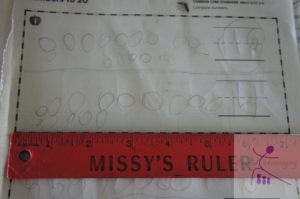
So, I’m pretty good at math and a quick mental calculation told me there is NO WAY she can get 16 cubes and 14 cubes in that box! So, as you can see we opted for “berries” instead since that’s what the question asked anyways.
This is just one example of the Kindergarten math ridiculousness I’ve been putting up with this year. This is what her math homework book looks like:
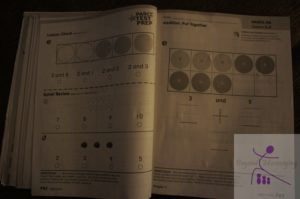
Most pages only have 2 or 3 questions and the focus is always on modeling the problem. She is required to count cubes and airplanes or draw counters and birds. And the back of almost every single page is 3 questions which are all fill in the bubble questions. Yes, I totally see how Common Core is reducing the problem of “teaching to the test”…
This is how I remember learning basic addition and subtraction (though my pages weren’t nearly as colorful and didn’t have princesses on them! This is a Basic Addition and Subtraction workbook I bought Honeybun at the dollar store to help her learn her facts which I then placed in page protectors so she can use a dry erase marker and do it over and over again):
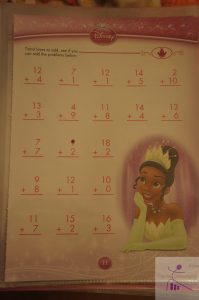
I know rote memorization is not the best way to teach most things, but on something like addition and subtraction facts, a certain about of memorization is necessary. Because I was forced to learn my facts, I was easily able to learn and excel as trickier math. I didn’t have to sit there and count on my fingers or use counters and cube trains. I knew that 2+2 is 4 so I could easily figure out that 12+2 is 14. I didn’t need a ten frame to do basic addition.
My frustration with the Common Core Mathematics curriculum comes from a concern for what my child is learning—or more specifically, not learning. If I (a person who gets math and is good at math and in the right circumstances actually even likes math) am struggling with helping my child with this work, how is a parent who maybe isn’t so confident in math going to help their child?
NOTE: Since writing this post, I have learned more about Common Core Mathematics and have changed my opinion. Read more: Reconsidering Common Core, Confusing Common Core, Continuing Common Core

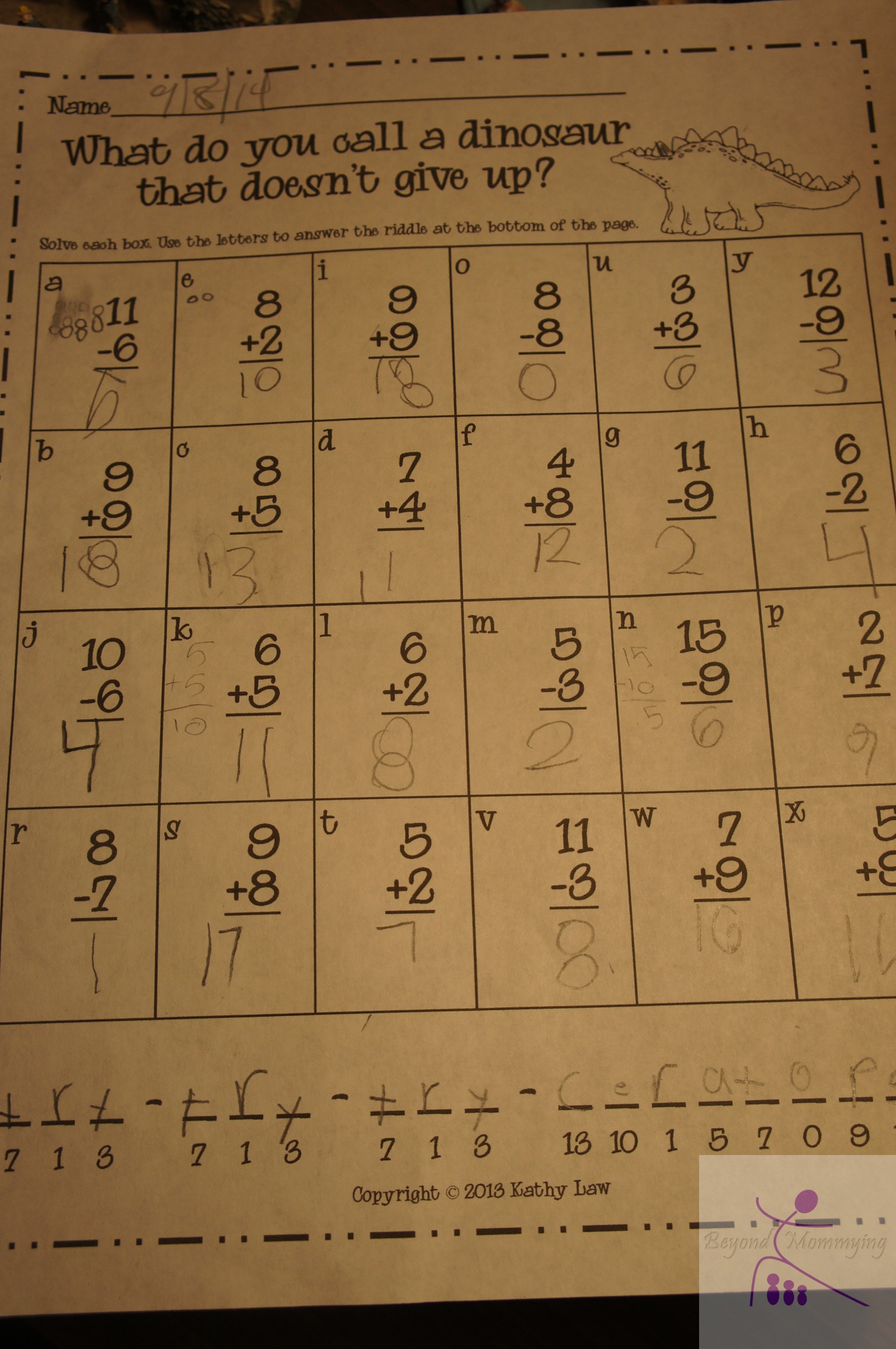
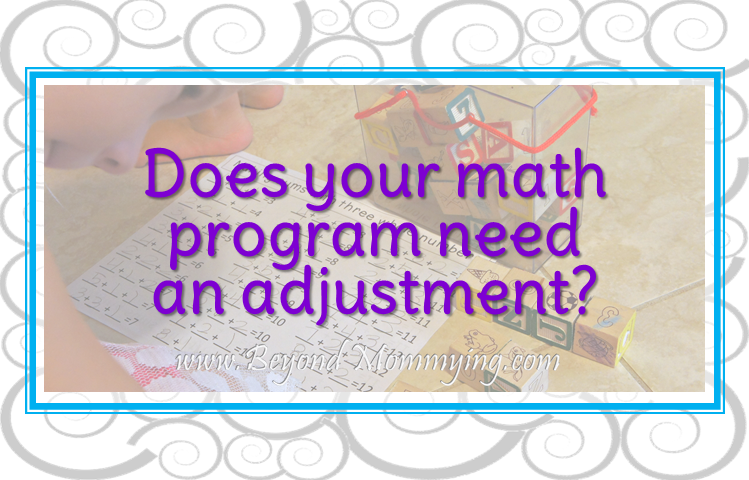
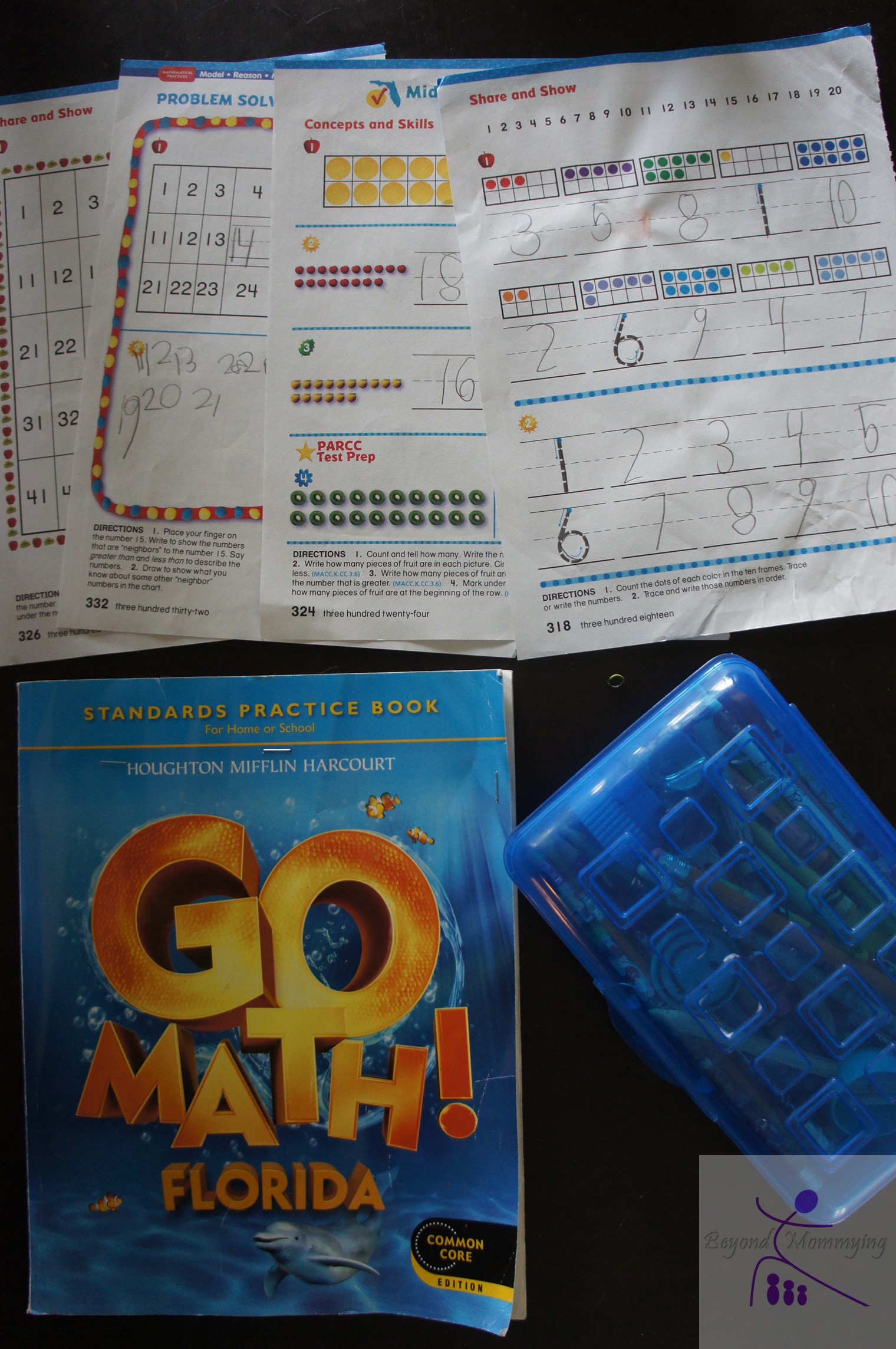
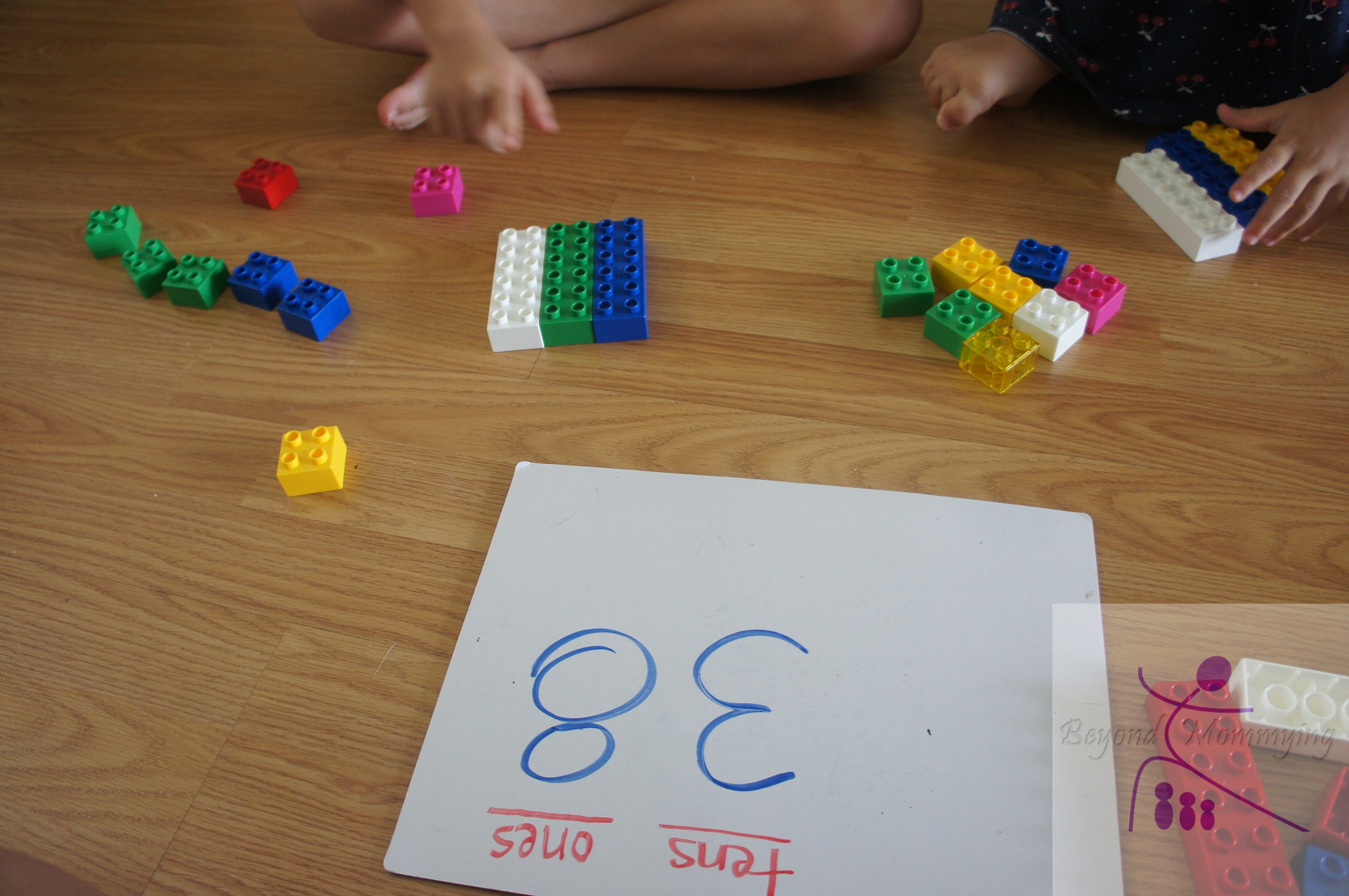
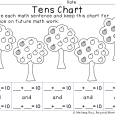

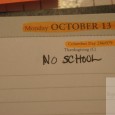

Education all over–including in my university classes–is doing these “innovative” processes, and it’s driving me nuts. I believe in some amount of modeling with math to support learning the facts, but your daughter’s homework question is excessive. I would be pulling my hair out.
It’s as though the school’s are aiming for innovation alone rather than what actually works.
I was thinking about this same thing, Rose. I think we’ve lost sight of what works and what doesn’t. We are so focused on the research and what the numbers show and we’re constantly looking for something that works BETTER instead of accepting that somethings that work are good enough. Our poor children are being the guinea pigs for the “future of education” and I’m a bit scared to see where they come out in the end!
I find it interesting when I can’t figure out the homework and it’s just kindergarten. It seems like it should be straight forward like you said and they have made it so complicated.
I’m a big believer in children not having to do homework if they can’t do it themselves (aside from long-term creative projects). If my child can’t read the directions herself or know what to do just looking at it, it’s too hard. The purpose of homework is skills practice, they should already know the concepts being practiced, parents shouldn’t have to be teaching them something new!
My son is in Kindergarten and I’m already worried about his academic future. My co-worker and I was just talking about the educational system here in Florida. Her poor daughter (who is in 3rd grade) has to take the FCAT in April(I believe) and she didn’t do well in the assessment. The assessment had things that she has never learned before so obviously she didn’t do well. The little girl has 1 month to learn fractions – not equations but reading a paragraph and figuring what the equation should be. Really? How can you expect a 3rd grader to learn something completely new when you haven’t even taught it? Instead of it being 3/6 its a math problem she has to figure out.
I’m just so worried that everything is about funding – teachers aren’t teaching they are just preparing our children for test! What happened to learning the fundamentals?
I agree, Felicita. I think most people in education do have good intentions but I’m not convinced we’re going in the right direction to solve the problems we are facing.